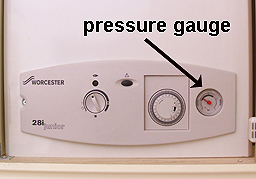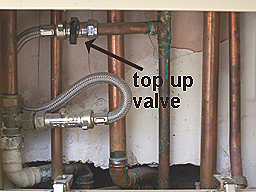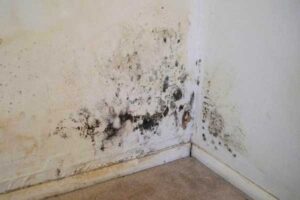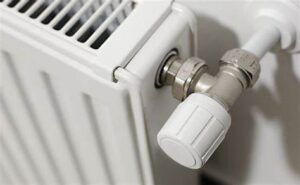Heating advice
As the weather gets colder & people start to turn on the heating we take a lot of calls from Tenants that their boiler isn’t working or some of the radiators are not getting hot.
During very cold snaps, our heating engineer contractors can’t always get to you on the same day.
The advice below won’t apply to you if you have an electric storage heaters.
A common issue when the outside temperature drops below freezing is for the condensate pipe from your boiler to freeze. When this happens, your boiler will lock out and will not work. The link below gives helpful advice on how you can thaw it out yourself to avoid an engineers visit to your home:
How to Thaw a Frozen Condensate Pipe | Boiler Guide
We also receive reports that some radiators are not working properly ( only half or just slightly warm). In most cases this will mean that the radiators have a build up of air inside them that needs to be released . the video below shows you how to bleed a radiator:
Sometimes after bleeding. the radiator may still not become hot. if you have Temperature control valves fitted to your radiators, the metal pin inside may have become stuck, this video shows you how safely you can free it off:
If you have a Combination boiler that has a pressure gauge on the front of it, the water pressure has to be at a certain level in order for the boiler to work. If the pressure gauge is indicating that the pressure is low ( 0.5 bar or pressure or below) you can manually top up the water pressure yourself. You will not be in any danger, as you will not be going anywhere near the combustion workings of the boiler. Simply google how to top up the water pressure on the make and model of your specific boiler. There are lots of helpful videos available. Water leaks from radiators cam cause the boiler pressure to drop, so if you spot a leaky radiator in your home, be sure to let us know.


A combi boiler is a closed system which is slightly pressurised. The boiler will only fire up if the pressure is correct.
There will be pressure dial on the front of the boiler. Check with your boiler instruction manual to see what the pressure should be for your model. It’s often between 1 to 2 bar pressure. If the dial is reading low you need to top up the system with water.
You should see an inline valve on the incoming water pipe. This will either have a small handle on it or alternatively simply a slotted valve which requires a screwdriver to open it. Sometimes you’ll find it on the pipework, but sometimes on the bottom of the boiler itself. Open the valve carefully whilst watching the pressure dial. It won’t take much at all to get the pressure to the required level. Be very careful you don’t over do it. And make sure you turn the valve off as soon as the required level is reached.
NB a valve is normally closed when the knob/screwdriver slot is at 90 degrees to the valve and fully open when in line with the valve.
There is nothing worse than being cold if your heating stops working, we recommend that you purchase a coupe of portable heaters in the event that there is a very cold snap and your heating stops working. We sometimes can lend out temporary heaters but its on a first come first served basis and we do not guarantee this service. Please make sure that if you buy pre-owned heaters that they are checked for their safety.
If you due to go on holiday and the weather is set to be below freezing at home, its advisable to turn of the water supply until you return. This will avoid any pipes freezing & bursting, which can cause a whole lot of damage to the property and your contents.
If you have an outside tap, ensure you insulate it during freezing periods or isolate it altogether to prevent it bursting.
We know that the cost of energy is a real worry for lots of people, (you and us included) but its really important that you do as much as you can to keep your home warm during the winter to avoid the property becoming too cold. A very cold home could result in the property becoming damp and mouldy, which in turn could impact on your family’s health. There is lots of advice & handy tips available online to help you keep warm this winter.
Avoiding mould in your home
:
We receive lots of reports of damp from Tenants at this time of year, its mostly not due to a fault with the property: The majority of the time it is due to a build up of condensation and lack of ventilation:
-Wipe water off your windows regularly: If you wake up to condensation on your windows, make sure that you wipe them to remove the standing water, otherwise it will evaporate into the air and you will notice nasty black mildew will form and cling to the walls around your windows and ceilings. Condensation will form when there is too much moisture in the air and not enough ventilation or if your home is not warm enough.
-Its tempting to dry clothes on radiators and heaters – you should not do this. It will cause the air to become too moist and mould will appear. (Hanging wet/damp clothes especially on electric heaters is very dangerous). Condensing tumble dryers are a good way to dry your clothes in the winter.
-Try and keep your home warm during the winter. Experts recommend that your home should be heated at a constant 18 degrees.
-Keep trickle vents open on windows ( if you have them) as this will allow air to circulate around your home
– As tempting as it seems, do not block up air vents
-Invest into a dehumidifier (you can purchase energy efficient electric models. Or you can purchase the boxed crystals that don’t cost anything to run
– Open windows and use extractor fan if you have one during and after showering/taking a bath
– Keep lids on pans when cooking and open a window or use the extractor fan if you have one
– Keep bedroom doors ajar at night when you are sleeping and have the windows open a small amount if safe to do so ( the human body gives off a lot of moisture at night )
– Open your curtains/lift the blinds during daylight hours to allow air to circulate
– Keeping furniture right up against walls can cause mildew to form on the wall behind the furniture as there is no room for air to flow. Move items of furniture away from the wall slightly to allow for ventilation
– If you see any spots of mildew, clean it with hot soapy water. Mould spores are like rabbits, they multiply very quickly ! As soon as you spot it, clean it off.
– Look up and check your guttering to see if you can see any obvious blockages. If it rains heavily , water can cascade off block guttering and penetrate through the brickwork causing damp to form.
Clearing guttering is a simple maintenance job and its your responsibility to make sure that you keep them clear from obstruction & blockages. If you are unable to clear the guttering yourself safely, call a gutter clearing company to do it, or call us and we will ask your Landlord if they will arrange it.
– If you spot arears of damp on your internal walls, take a look outside to see if there is anything obvious that could be causing it and then let us know.
Financial help that’s available this winter:
If you are struggling with your energy bills, you may also be able to get additional help: Citizens Advice – provide free energy advice and support via email, phone, or online. Their advisors can help with what grants and benefits are available to you, as well as providing support if you have any issues with your energy supply. You can contact their helpline on 0808 223 1133
Winter Fuel Payment – if you receive a state pension and If you were born on or before 25 September 1956, you will receive the Winter Fuel Payment which is worth between £250 and £600.
Cold Weather Payment – between the 1 November and 31 March people claiming certain benefits will receive a payment of £25 if the average temperature in your area is recorded as, or forecast to be, zero degrees, or below for 7 consecutive days. Check if you can get a payment in your area.
Warm Home Discount – this one-off payment gives eligible older and low-income consumers £140 off their energy bill.
Help for Households: help with your energy bills – find out more about the Government’s energy bill discount payment for UK households as well as cost of living payments
There are also lots of free or low-cost ways to save money on your energy bills. Phone the Energy Saving Advice Service on 0300 123 1234






